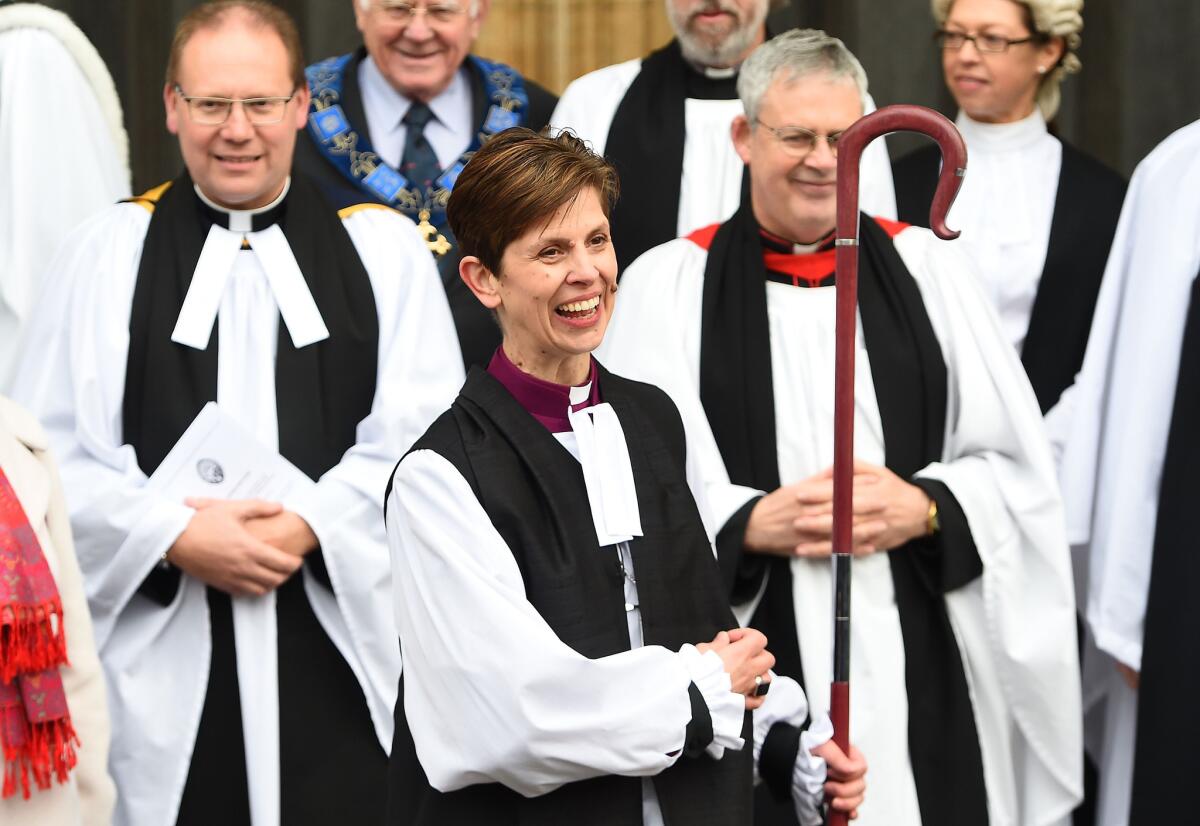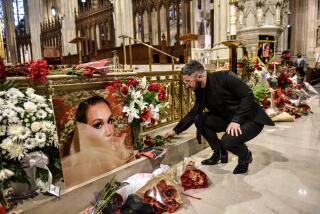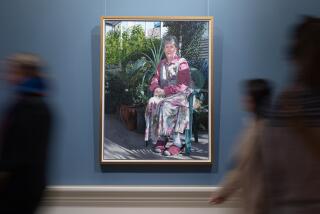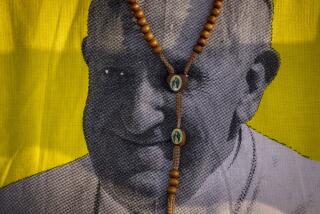Church of England consecrates Libby Lane as its first female bishop

The Church of England took a historic leap toward modernity Monday by consecrating its first female bishop.
The Rev. Libby Lane was ordained the bishop of Stockport during a packed ceremony that ended centuries of male-only leadership.
More than 1,000 people attended the service inside York Minster, the cathedral in the northern city of York, but a lone male priest who interrupted proceedings to protest the appointment served as a reminder the move is not universally welcomed.
“No. Not in the Bible,” the Rev. Paul Williamson said when Archbishop of York John Sentamu asked the members of the congregation whether it was their will that she should be ordained.
Sentamu calmly continued with the service, stating that the appointment of a female bishop was now “part of the law of the land.” He then once again asked those present whether it was their desire to see Lane ordained and received no objection.
The church later said it was prepared for the outburst because Williamson is a known “serial protester.”
Lane’s appointment comes more than 20 years after women first became priests in the Church of England, a move that caused hundreds of male priests to leave, many for the Roman Catholic Church.
It was followed by long debate and dissent between traditionalists and reformers over whether to allow women into the church’s highest ranks.
In November, legislation to allow female bishops was finally formally adopted by the General Synod, and Lane became the first woman to be named to the post in December.
“It’s a step in a long story, but it’s a significant step, that’s for sure,” said University of Exeter sociology professor Grace Davie, author of “Religion in Britain: A Persistent Paradox.”
“There will be a few people who will be disgruntled, but most people in the church will welcome this; most people in the country will welcome it.”
Lane, 48, took an oath of allegiance to the church and Queen Elizabeth II during the 90-minute ceremony, watched by her husband, who is also a priest, and the couple’s two children.
Archbishops from across the Anglican Church came forward to lay their hands on Lane’s head to mark the moment she was consecrated. She was then met by a sustained standing ovation.
Lane beamed through much of the service and was greeted by a steady stream of well-wishers at its conclusion.
After hugging her family, she also gave a jubilant thumbs up to someone with whom she made eye contact in the congregation.
“Today is an occasion of prayer and party, and I am thrilled that so many want to share in both,” she said in a statement released by the church.
The Church of England is grappling with a massive decline in worshipers — over about five decades, the average number attending Sunday services in Britain has halved to just 800,000 — and there are some who hope this new openness to equality could help bring people back to the pews.
“There’s a real need for fresh thinking about where the church is going,” said Linda Woodhead, sociology of religion professor at Lancaster University.
“The male thinking has been getting more and more conservative. I think women on the whole in their ministry seem to be more about opening up to society again … less clerical and more pastoral.”
When the appointment was made, Lane acknowledged that she was both excited and daunted by the challenge, but that she had no intention of shying away from any difficult conversations with her detractors.
“I genuinely think diversity is better than being monochrome,” the Oxford University graduate said. “I think a bit of discomfort is good for us.”
She also hoped her appointment would pave the way for more women to reach the top posts in the church.
“I look forward to the time when I will still be the first, but no longer the only woman to have been nominated a bishop in the Church of England.”
Boyle is a special correspondent.
More to Read
Start your day right
Sign up for Essential California for news, features and recommendations from the L.A. Times and beyond in your inbox six days a week.
You may occasionally receive promotional content from the Los Angeles Times.






